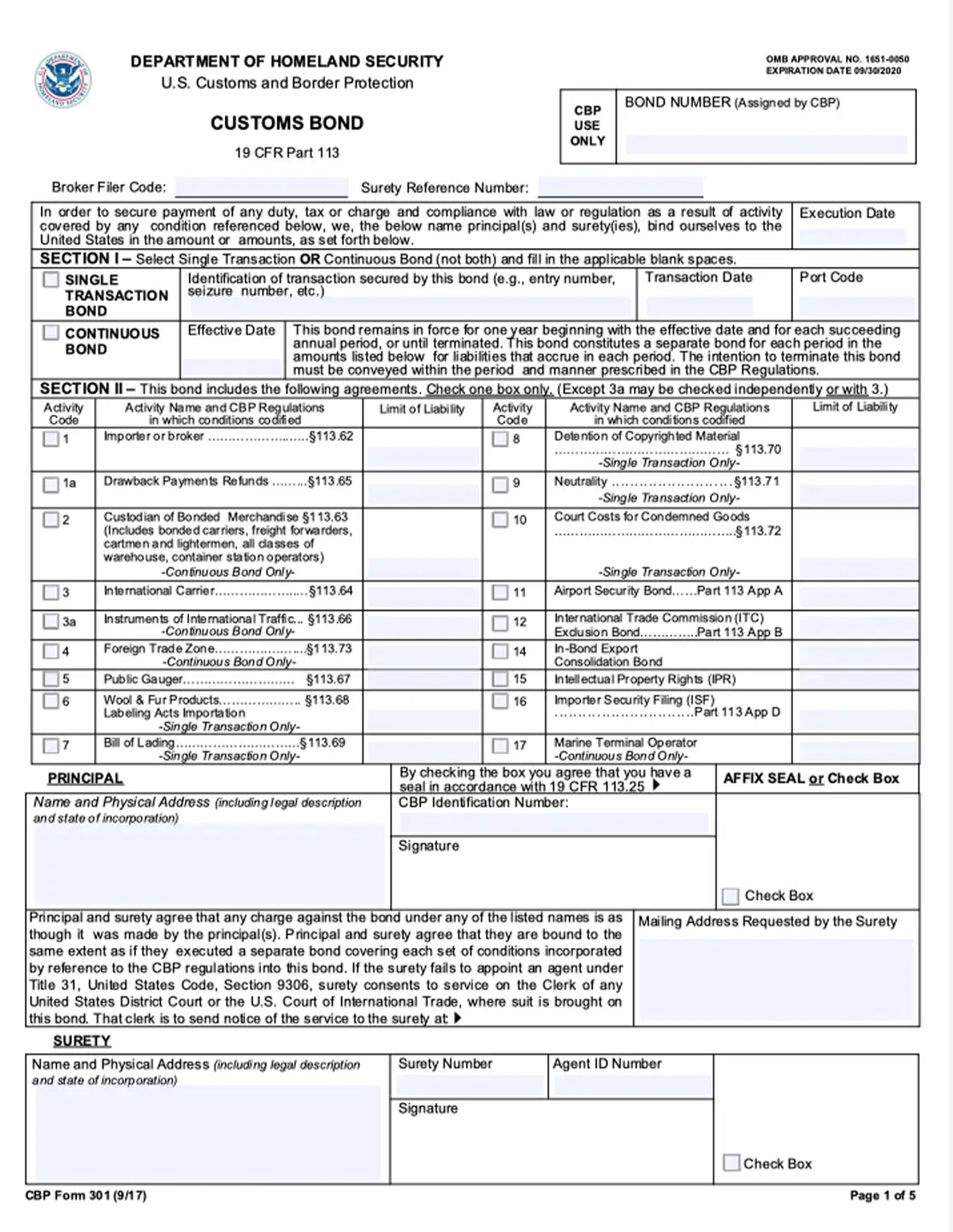Videos & Webinars
Watch videos featuring supply chain experts
Ports across the globe handle more than 80% of the global merchandise trade in volume and more than two-thirds of their value. Many rules and regulations have been defined by trade organizations for importers, exporters, and the customs offices to streamline the inflow and outflow of goods. These include having an authentic import-export license, complying with Foreign Trade development and regulations, filling the right import/export documents, and so on.
For those planning to import goods from a foreign country, there are some basic concepts that you must get familiar with. One of them is posting a customs or import bond.
A customs bond is a legal contract or an insurance policy (when simply put) that assures the concerned authorities all import duties and taxes are or will be duly paid by the importer for the goods imported into the country. Ideally, the contract is signed between three parties – the customs, the importer, and the surety.
A customs bond becomes necessary in the following circumstances:
Besides these, It’s an essential document needed even when you’re transporting goods from one state to another, especially in the U.S. The bond covers all goods entering the country via air or sea routes.
Typically, there are ways to obtain a customs bond.
Of the two methods, reaching out to a customs broker is an easier option to obtain a customs bond. They’re aware of the entire process and well-versed in handling all the related paperwork and documentation.
On the other hand, if you’re keen on obtaining the bond on your own, you can purchase one from a surety licensed by the federal government. In the U.S., for example, you can get a customs bond from the U.S. Treasury Department.
Let’s take the example of the U.S. customs bond to understand the basic format of this legal document.

As you can see, a customs bond is a comprehensively defined document that asks for many necessary information. Some of them are as follows:
A customs bond plays a significant role in streamlining the entire consignment procurement and processing system. It ensures faster customs clearance and guarantees the authorities that payment of any additional import duties, taxes, or fees will or have been duly paid. Such assurance enables the port authorities to clear the shipment without waiting for an importer to make payment(s). The surety company involved in the process clears all the dues with the authorities post which the importer reimburses the specified amount to the surety.
To conclude, having the right customs bond along with other necessary import documents in your arsenal can help streamline the entire customs clearance process and your business’s import activities. To know more about customs bonds and which one would best suit your business needs, contact your country’s federal customs department.
A customs bond acts as a document of surety guaranteeing the customs authorities that all additional duties, taxes, and fees will be paid immediately, if any, to ensure a smooth and faster customs clearance. The surety pays the additional charges at the site of port. This amount is then reimbursed to the surety by the importer at a later stage.
You can get a customs bond either from a government licensed customs broker or by approaching the international freight forwarder.
Ideally, there are two types of customs bonds. You can choose one as per your business’s needs and requirements.
A customs bond serves as a document of assurance that all duties and taxes will be paid to the concerned authorities even in extreme circumstances such as bankruptcy, closure of the business, etc. You can face delays in the release of shipment(s) from the port to your destination or face fines if you do not have the right customs bond.
If you’re working with a licensed customs broker, you can use your broker’s customs bond to secure your transaction.
Usually, the customs bond cost is calculated based on the duties, taxes, fees associated with the goods imported into the country.
The cost of customs bond can also be calculated based on the types of goods you’re importing and whether the bond is meant for single-entry use or multiple-entry use.
In the case of single-entry bone, the cost must be equal to the total value of the goods imported plus all fees, taxes, and duties. The minimum written value of a single-entry bond is $100. However, this may vary from one country to another.
Continuous customs bonds, on the other hand, are generally more popular among importers as they also cover ISF filing, which is required in the case of sea shipments and enables you to transact imports unlimited times in a year.
The process of calculating the amount of continuous customs bonds is quite different from its counterpart. Rather than being calculated based on the total value of the goods, the amount is computed based on the estimated total duties, taxes, and fees for the next one year multiplied by 10%. The value would round up to about $10,000 approximately.